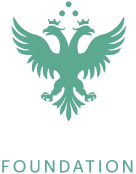Addictions
In contrast to occasional, recreational, or therapeutic use of a substance, continued use that impacts on a person’s physical and mental health, social situation, and/or responsibilities can be classified as misuse or addiction. According to the American Society of Addiction Medicine, addiction is defined as “a primary, chronic disease of brain reward, motivation, memory, and related circuitry. Dysfunction in these circuits leads to characteristic biological, psychological, social, and spiritual manifestations. This is reflected in an individual pathologically pursuing reward and/or relief by substance use and other behaviours.” Included in this definition are legal substances such as alcohol and tobacco, as well as currently illicit substances.
For many substances, current treatments are moderately effective at best, and many people continue to struggle with addictions and their consequences, having exhausted existing treatment options. Studies in the 50s and 60s investigated the effectiveness of psychedelics in overcoming addictions, but due to regulatory hurdles, these studies have been stopped for 30 years, despite their promising results. The need to find alternative treatment options is urgent. In addressing this need, our Programme investigates the effectiveness of:
Psilocybin for Smoking Cessation
A Beckley-sponsored pilot trial, conducted by Prof Roland Griffiths and Dr Matthew Johnson at Johns Hopkins University, was the first study in modern times to investigate the efficacy of the psychedelic psilocybin as an aid to psychotherapy (as part of a structured 15-week smoking cessation treatment protocol) in overcoming nicotine addiction. The results were extremely promising, with 12 of 15 participants (80%) showing abstinence at 6 month follow-up. This is a substantially higher percentage than commonly reported for any other behavioural or pharmaceutical intervention. Although the study was open-label (subjects knew they were getting psilocybin), it demonstrates the potential of psilocybin as an addition to smoking cessation programmes. A second, larger trial with a brain-imaging component to investigate the neurobiological effects of this approach is currently underway.
LSD for Alcohol Addiction
A 2012 meta-analysis of the highest quality studies of that era concluded that a single dose of LSD had a significant and long-lasting beneficial effect on alcohol-use disorder; patients who received this treatment were almost twice as likely to improve as patients receiving placebo.
Cannabidiol (CBD) for Smoking Cessation
A number of animal studies suggest that CBD (cannabidiol – a non-psychoactive cannabis constituent) may have therapeutic properties that may help treat opioid and psychostimulant addictions. Some preliminary data also suggest that it may be beneficial in cannabis and tobacco addiction in humans.
OUR PUBLISHED STUDIES ON ADDICTIONS
Cannabidiol reduces cigarette consumption in tobacco smokers: preliminary findings
Addictive Behaviors, April 2013
Pilot study of the 5-HT2AR agonist psilocybin in the treatment of tobacco addiction
Journal of Psychopharmacology, 2014
Psilocybin-Occasioned Mystical Experiences in the Treatment of Tobacco Addiction
Current Drug Abuse Reviews, 2014
Jump to other clinical applications
Addictions
Podcast
- All
Links
- All
Support
- All
BIPRP
- All
Science Talk
- All
Amanda's Talks
- All
- Video Talk
- Featured
- 2016 Onwards
- 2011-2015
- 2010 and Earlier
- Science Talk
- Policy Talk
One-pager
- All
Music
- All
Amanda Feilding
- All
Events
- All
Highlights
- All
Psilocybin for Depression
- All
Current
- All
Category
- All
- Science
- Policy
- Culture
Substance/Method
- All
- Opiates
- Novel Psychoactive Substances
- Meditation
- Trepanation
- LSD
- Psilocybin
- Cannabis/cannabinoids
- Ayahuasca/DMT
- Coca/Cocaine
- MDMA
Collaboration
- All
- Beckley/Brazil Research Programme
- Beckley/Maastricht Research Programme
- Exeter University
- ICEERS
- Beckley/Sant Pau Research Programme
- University College London
- New York University
- Cardiff University
- Madrid Computense University
- Ethnobotanicals Research Programme
- Freiburg University
- Medical Office for Psychiatry and Psychotherapy, Solothurn
- Beckley/Sechenov Institute Research programme
- Hannover Medical School
- Beckley/Imperial Research Programme
- King's College London
- Johns Hopkins University
Clinical Application
- All
- Depression
- Addictions
- Anxiety
- Psychosis
- PTSD
- Cancer
- Cluster Headaches
Policy Focus
- All
- Policy Reports
- Advisory Work
- Seminar Series
- Advocacy/Campaigns
Type of publication
- All
- Original research
- Report
- Review
- Opinion/Correspondence
- Book
- Book chapter
- Conference abstract
- Petition/campaign
Search type
